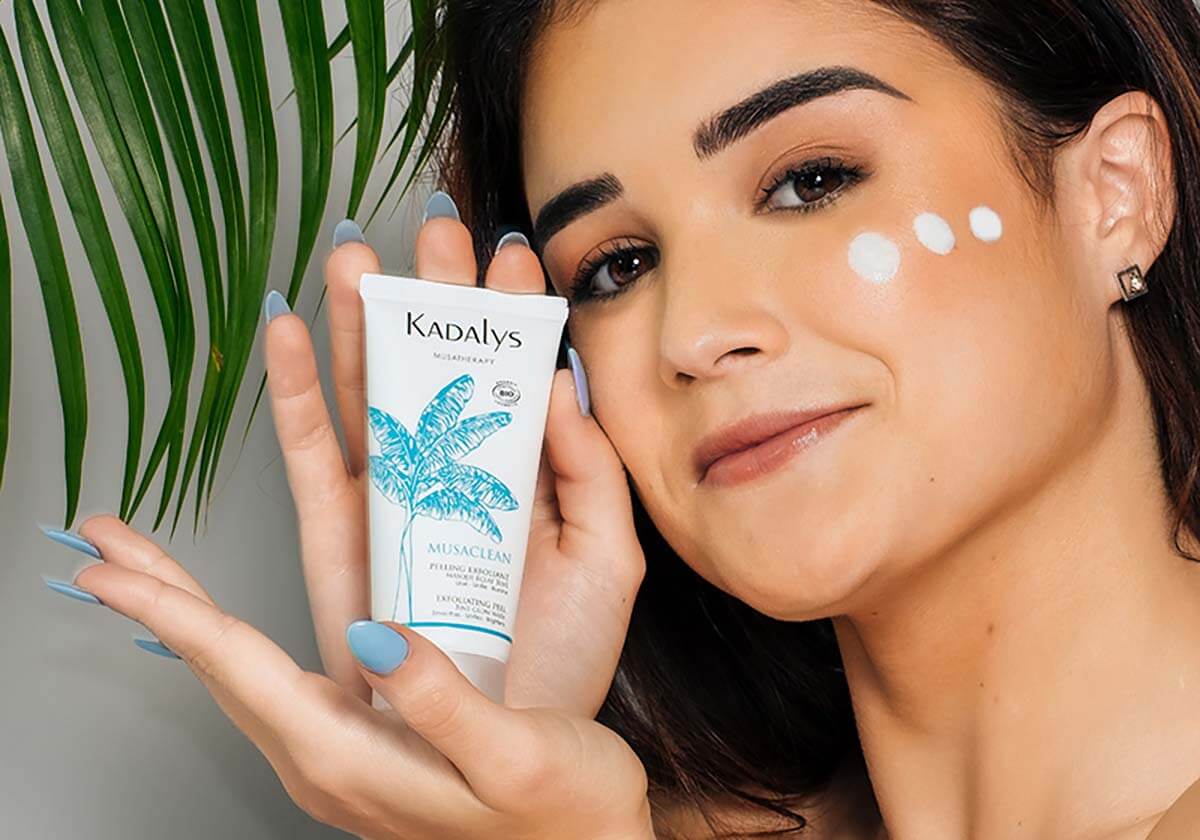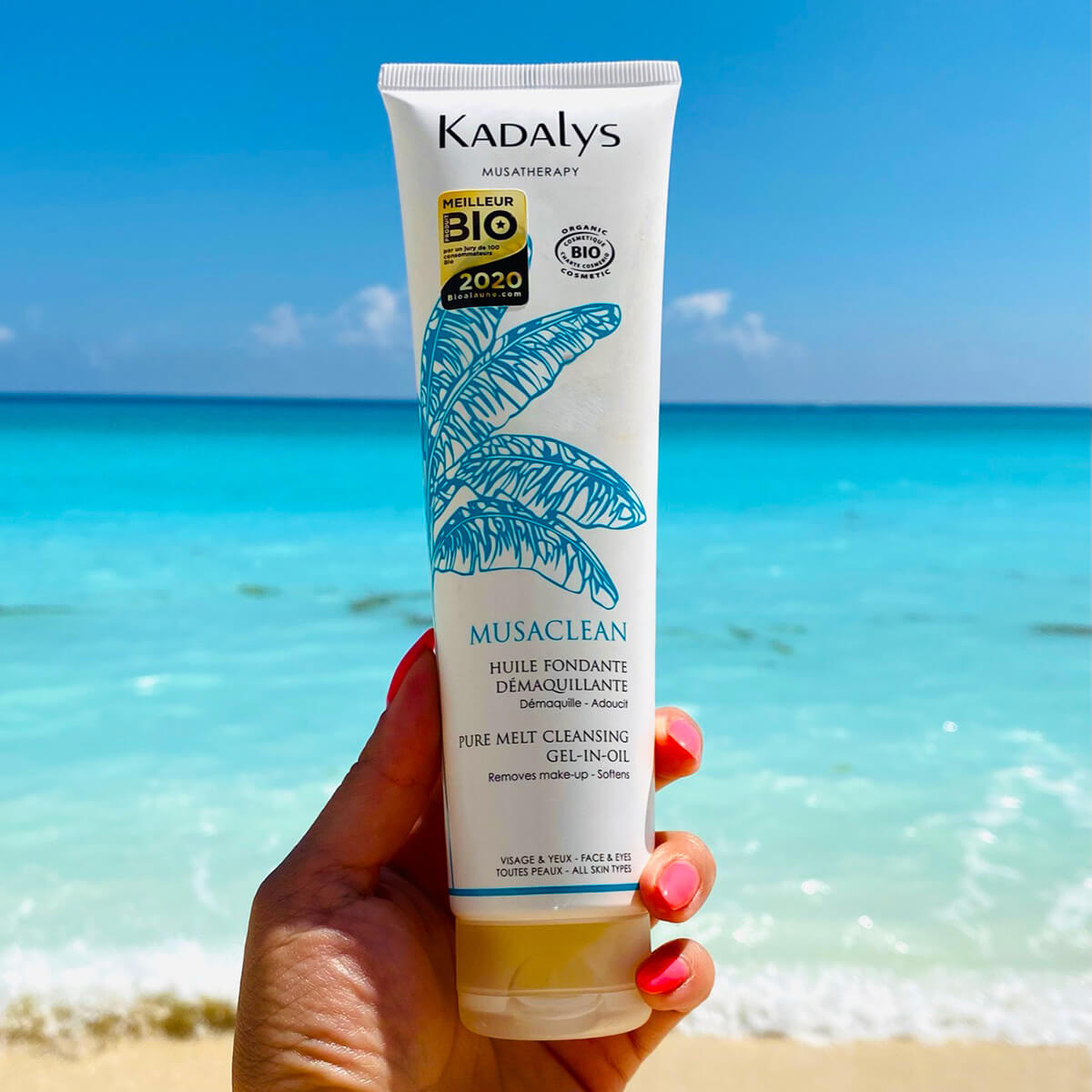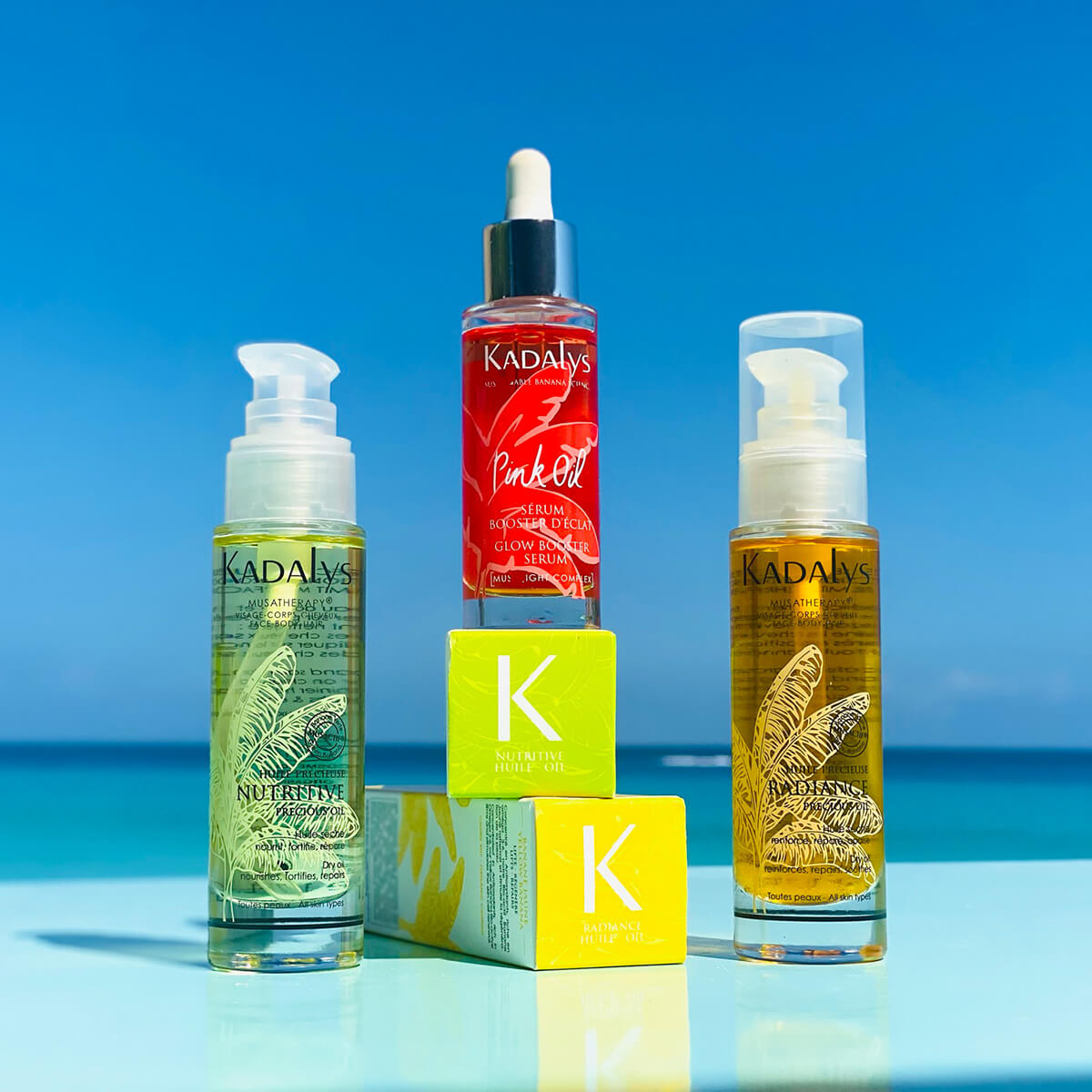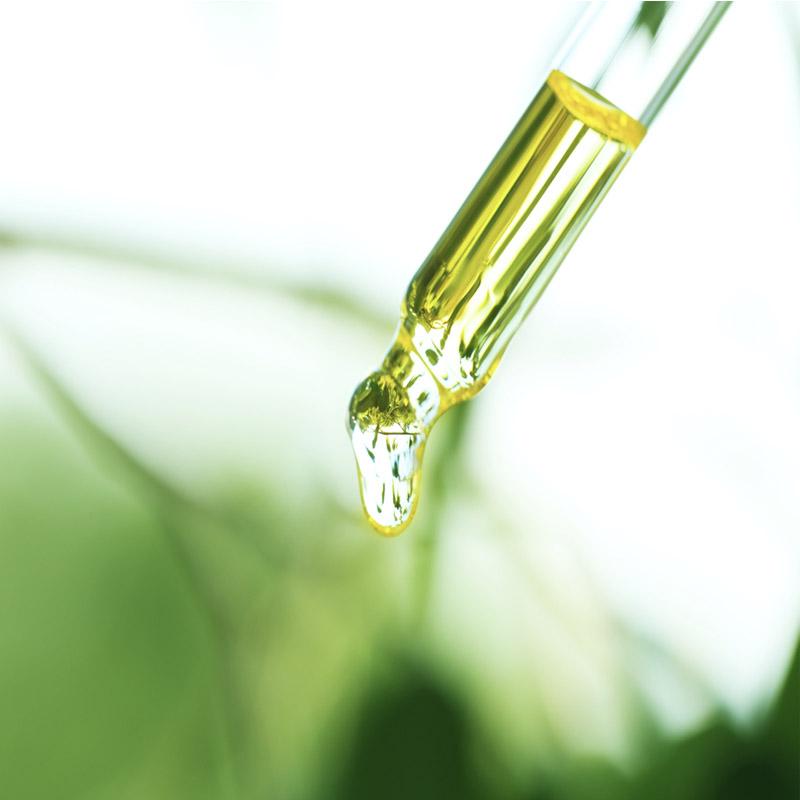
Why Exfoliate (& Why You Shouldn't)
Like most people, you probably don't think about exfoliating your skin very often. But did you know that exfoliation is integral to a healthy skincare routine?
Let's look at 7 reasons you should exfoliate today. Plus, we'll share 3 reasons why you might think twice before doing so.
Why exfoliate?
Exfoliation is a process of removing dead skin cells from the surface of your skin. This can be done mechanically, with a physical exfoliant like a scrub, or a chemical exfoliant such glycolic or lactic acid.
These active ingredients are known as alpha hydroxy acids, and they work by gently loosening the bond between cells so dead cells can be rinsed away.

Exfoliation is important for both the health and appearance of your skin. Removing dead skin cells helps refine rough texture, clear pores, and even out skin tone.
Every skin type can benefit from proper exfoliation. Even exfoliating just once a week can make a big difference in the way your skin looks and feels. And while our focus is on face skin, it's worth noting that the benefits of exfoliation apply to body care (using your fave body scrubs) as well.
Here are 7 of our favorite reasons to incorporate a gentle exfoliator into your weekly skincare routine.
1. Refines skin texture
The process of removing dead skin cells not only refines the skin's texture, but also makes your skin look smoother. When you slough off dry, flaky patches, your skin texture will look more even.
Skin typically renews itself every 28 days or so. As we age, the renewal process slows down, and when our skin cells naturally die, they build up on the surface of our skin. If you don't remove these dead skin cells, they can lead to a rough and uneven complexion.
Exfoliating helps to slough off these old skin cells, revealing newer, smoother skin.
2. Prevent clogged pores
When dead skin cells accumulate on the skin's surface, they make difficult for new cells to develop and make their way to the surface. The layer of dead cells can lead to a build-up of oil and bacteria, which causes clogged pores and breakouts.
For those with acne prone skin or even combination skin, removing dead skin cells can be a game-changer. It helps to unclog pores, remove dirt and oil that can cause breakouts, and it also helps to prevent dead skin from accumulating on the surface. All these benefits make exfoliating your face an important part of keeping skin clear and glowing.

Regardless of your skin type, you need to be careful about exfoliating blemished skin. If you are experiencing a breakout, focus on a chemical exfoliator with an alpha hydroxy acid such as lactic acid. Using a physical scrub could damage your skin's barrier and make your blemishes or acne worse. It can also contribute to spreading acne-causing bacteria to other parts of your face.
By exfoliating your skin regularly, you can help keep pores clear and prevent acne breakouts. A big win for acne prone and oily skin!
3. More youthful look
Exfoliating helps improve the appearance of fine lines and wrinkles by removing dead skin cells that can build up on the skin's surface. This build-up can make fine lines and wrinkles more visible, so by exfoliating regularly, you can help to keep them looking minimized.
Exfoliating your face also helps stimulate collagen production (helps with skin elasticity) and encourages cell turnover. Cell turnover means your skin constantly generates new cells, resulting in smoother, plumper skin.
So if you're looking to achieve a more youthful complexion, regular exfoliation should be part of your skincare routine.
4. Preps Skin
Dead skin can act as a barrier, preventing creams and serums from reaching the deeper layers of the skin.
When you exfoliate your face, you remove dead skin cells, allowing your serums, moisturizers, and other skincare products to penetrate deeper into the skin. Delivering more hydration helps your skin retain moisture, which leads to glowing skin.
That's why a regular exfoliation routine can help improve your skincare routine's effectiveness.
If you have been using the same products for a while and are not seeing the results you want, adding an exfoliating product to your skin care rituals may help.
5. Boosts radiance
Dead skin build up on the outer layer of your skin's surface can make your skin dry and look dull. Exfoliating helps remove dead skin cells, revealing fresh, new skin underneath.
The result? Radiant, glowing skin!

Manual exfoliation also helps to stimulate blood circulation, which delivers oxygen and nutrients to the skin. The result is a more youthful appearance.
Look for products with gentle physical exfoliants such as jojoba beads to maintain healthy skin.
6. Even out skin tone
Additionally, exfoliating can help to even out the skin tone by reducing the appearance of dark spots and hyperpigmentation. Hyperpigmentation is a condition in which the skin produces too much melanin, resulting in dark patches.
Exfoliating your skin can help reduce the look of pigmented cells. When used in combination with a skin-brightening agent like vitamin C, exfoliation will help speed up the fading process.
Look for facial scrubs with mild chemical exfoliants, such as glycolic acid and lactic acid. These exfoliants can help break up pigmented cells, making them less visible.
However, it’s important not to overdo it with exfoliating products, because during the summer, when melanin cells are active, too much exfoliation may trigger more melanin production.
In addition, the use of exfoliating acids can make the skin more sensitive to the sun, increasing the risk of sun damage. Wearing sunscreen daily is vital for everyone, including those with darker skin tones.
7. Better make-up application
When you exfoliate before applying make-up, you create a smooth canvas that allows for better product application and a flawless finish.
Exfoliating also helps to prevent your make-up from looking cakey or settling into fine lines and wrinkles. If you have trouble getting your make-up to look its best, try exfoliating first!
Bonus Reason: It's self-care
Taking the time to exfoliate your face is a form of self-care. It can be relaxing and therapeutic, and it can help you to feel good about yourself.
When you care for your skin, you're caring for yourself, which is always worth the time and effort.
Why not to exfoliate
Now that you know the benefits of exfoliating, here are three reasons why you shouldn't exfoliate your skin:
1. Over exfoliation
Exfoliating too often can cause damage to your skin's moisture barrier, leading to dryness, irritation, inflammation, and even breakouts.
The skin barrier is a thin layer of lipid molecules that helps to protect the underlying skin from external aggressors.
Exfoliating too often can also cause micro-tears in the skin, which can lead to the issues above, sensitivity, and infection.
If you recently exfoliated or received a facial treatment, it's best to avoid exfoliating again for at least a few days or maybe a week, depending on your treatment.
For most people, exfoliating twice a week is sufficient. And be sure to use a gentle exfoliator appropriate for your skin type. Otherwise, you may do more harm than good.
2. Damaged Skin
When the skin is damaged, its natural barrier is weakened, making it more susceptible to irritation and inflammation. Exfoliating can further damage the skin by stripping away its protective oils and leaving it vulnerable to environmental stressors.
Instead, focus on gentle cleansing and moisturizing to help repair your damaged skin. If you're concerned about the appearance of damaged skin, consult a dermatologist or skincare professional for guidance on healing and restoring your skin.
3. You'll be in the sun
You should also avoid exfoliating before spending the day outdoors. The exfoliation process can remove the top layer of skin, making you more susceptible to sunburn.

When the skin is sunburned, the top layer of skin is typically damaged or destroyed. As a result, exfoliating sunburned skin can cause additional irritation, pain, and inflammation.
In severe cases, exfoliating sunburned skin can even lead to infection. Therefore, it is best to wait until the sunburn has healed before exfoliating the area.
And, as always, if you plan to be outside, you should apply a broad spectrum sunscreen with an SPF of at least 30. Apply sunscreen to all exposed skin, including your face, neck, ears, and hands. Reapply every two hours, or more often if you're swimming or sweating.
Possible Reason: Dry or sensitive skin
If you have especially reactive, dry or sensitive skin, you may want to limit how often you exfoliate your face or avoid it altogether. Sensitive skin is easily irritated, and exfoliating can cause further irritation.
If you choose to exfoliate, use a gentle exfoliator appropriate for your skin type. You should also start by exfoliating only once or twice a week and increase the frequency gradually as your skin gets used to the treatment.
If you experience any irritation, redness, or inflammation, stop exfoliating and consult a certified dermatologist for guidance.
The Bottom Line
Exfoliating has many benefits. Removing that surface layer of dead skin will give you a fresh glow.
Whether you prefer chemical exfoliation or physical exfoliation, adding a weekly treatment to your skin care routine is generally a good idea. It can help improve your complexion, remove dead cells, and unclog pores. It can also help reduce the appearance of fine lines and wrinkles.
However, there are a few reasons you shouldn't exfoliate your skin, such as if you have damaged skin or recently received a facial treatment.
When it comes to taking care of your skin, there is no one-size-fits-all approach. What works for someone else may not work for you. Listening to your skin and how it reacts to different treatments is essential.
And, if you have concerns about exfoliating, consult a certified dermatologist or skin care professional for guidance. They can help you create a routine that meets your unique needs.
Following these guidelines can help keep your skin healthy and glowing. Don't forget to share your glow with us @kadalys_us.
Additional Reading
Dead Skin Build Up: Causes & Tips to Remove





